The content of the article
Mango is an exotic tropical fruit that has long been firmly used by residents of all countries and continents. Its specific taste attracts with its singularity. Among the fruits there are no representatives who would be analogues of mango. Like any tropical plant, mango contains many nutrients that are so scarce for the inhabitants of more northern latitudes. However, is it good to eat mangoes?
General information about the fruit
Mango is a plant of the Mango genus of the Sumach family. All members of this family prefer a humid and warm climate. Only some of its representatives are growing in Russia. For Mango, the climate of this country is too cold. The Sumakhov family also includes Pistachio and Cashew. In addition, organic paint is obtained from many plants of this species.
Mangoes are very large fruit trees.Their height can reach 30m. The fruits of these trees are also different. There is a widespread belief that the mango in size and color resembles an orange. In fact, the weight of this fruit can reach 1kg, and its color varies from orange to green. Inside the mango really is always orange or yellow.
Homeland of this plant is India. In its tropical rain forests and now wild species of mango grow. In addition, this plant is in Pakistan and Myanmar. Cultivates it also in some regions of Spain and the Canary Islands. It is very difficult to grow mangoes in greenhouses due to the size of the plant itself and its capricious nature.
Mango Nutrition Facts
Mango - a real storehouse of vitamins and minerals. The fruits, which absorbed all the warmth of the southern sun and the moisture of the tropics, not only have a pleasant taste, but also have great benefits for the body.
The mango contains almost all the representatives of the B vitamins. Among them, most of all are thiamine, riboflavin, niacin, pantothenic and folic acids. All of these vitamins are water-soluble, because they easily enter the body along with other nutrients derived from this fruit.
In addition, mango contains a large amount of another water-soluble vitamin - vitamin C. 100 g of this fruit is 4 times more ascorbic acid than 100 g of lemon. It is necessary to take into account the fact that such amount of mangoes can be eaten easily, but lemon is not. In addition, this plant contains fat-soluble vitamins. It contains a large amount of vitamins A, E, K and D.
In addition to vitamins, mango contains a large number of trace elements such as: calcium, phosphorus, potassium, magnesium and zinc. It is worth noting that it is in this combination that these substances are produced in the form of drugs. They potentiate each other's action, bringing maximum benefit. There are also many essential amino acids in mangoes that our body needs, but he himself cannot synthesize them.
However, this fruit has negative sides. Mango nutritional value: 70kcal per 100g. It is almost comparable to 100g of boiled potatoes. It is not recommended for those who watch their figure to get involved in this fruit. Nutrients in mango, as in any other fruit, are not balanced. The ratio of proteins, fats and carbohydrates is 2: 1: 38 at a rate of 1: 1: 4.As you can see, the carbohydrate content in mango significantly exceeds the norm.
The benefits of mango
As already mentioned, this fruit has a large number of substances necessary for the body. They determine the benefits of mango. The fruit of this plant has the following positive qualities:
- Strengthens the immune system. Due to the content of the two most active antioxidants: vitamins C and E, mango protects against colds. These vitamins always work in pairs, a sufficient amount of them even able to protect the body from cancer.
- Acceleration of metabolism. B vitamins are involved in many metabolic processes. They help accelerate the conversion of fats and carbohydrates into energy. Given this fact, losing weight is offered a special mango diet. However, it should be remembered that the mango itself is a high-calorie product and contains many carbohydrates, because it can only be consumed in limited quantities.
- Improves eyesight. Vitamin A contained in mango is involved in the work of the visual analyzer. With a lack of this vitamin develops a statewhich is popularly called “chicken blindness” - loss of twilight vision. By consuming this vitamin, visual acuity is restored.
- Improves skin properties. Wrinkles, cracks and dry skin appear due to lack of B vitamins and vitamin A, they are all in mango. That is why this fruit is useful to use both inside and outside use.
- Interferes with development of stones in kidneys. Stones are formed with an excess of calcium and phosphorus deficiency, sometimes vice versa. The mango fruit contains both calcium and phosphorus, because people who use them do not have urolithiasis.
- Obstacle to the development of atherosclerosis. This disease occurs when a large amount of cholesterol accumulates in the body. This occurs due to metabolic disorders, as well as due to excessive fragility of the vessels. With the first factor fighting vitamins of group B, accelerating the excretion of cholesterol, with the second - vitamin C, which increases the strength of blood vessels.
- Normalization of the nervous system. The fact is that many diseases of the central and peripheral nervous systems are associated with a lack of various vitamins of group B.Moreover, the lack of each vitamin causes a specific neurological disease. When eating mango, a person receives these vitamins, which prevents the occurrence of pathological conditions. In addition, B vitamins are needed to restore nerve fibers after injuries, strokes and other lesions. People who have suffered such conditions are recommended to eat mango.
- Improving the work of the heart. In order for the heart to work properly, you need two trace elements - potassium and magnesium. Both are contained in mango.
Thus, it can be said that mango fruits can replace many drugs and prevent the development of many diseases. However, it has negative properties.
Harm and contraindications
It is worth remembering that mango is a tropical fruit. There is only one exotic plant, which favorably affects the inhabitants of all continents and never causes allergies - it is a banana. All other fruits can cause a strong allergic reaction and mangoes are no exception. It is especially dangerous to use the peel of this fruit.That is why at first it is recommended to eat the peeled fruit in very small quantities.
In addition, mango should not be used by people suffering from diabetes. Mango is a sweet fruit that contains large amounts of carbohydrates. Therefore, it should be treated as a dessert. Also, due to the high calorie content, eating mangoes should be limited to people suffering from obesity.
Even a healthy person should not eat more than two small mangoes per day. The fact is that when overeating, this fruit can cause heartburn, constipation and even cause gastritis. In addition, the mango should always be consumed after the main course.
Thus, we can conclude that mango is a very useful product, which includes a large amount of vitamins, trace elements and other nutrients. They determine the positive effect of mango on the human body, but there is also a negative effect. Mango, like any fruit, should always be consumed in moderation.
Video: useful properties of mango

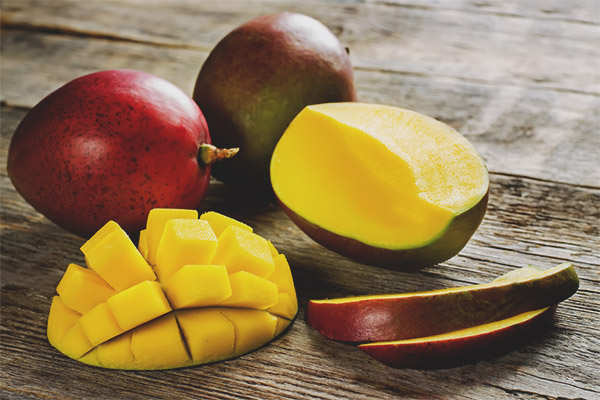
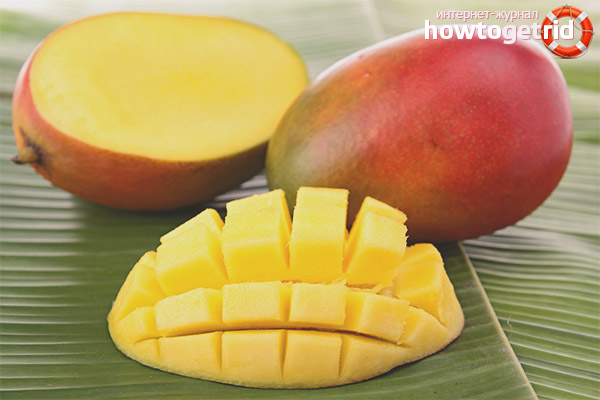



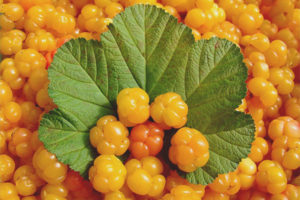
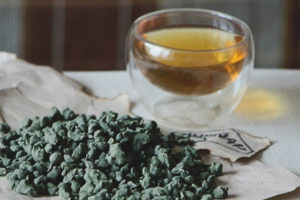
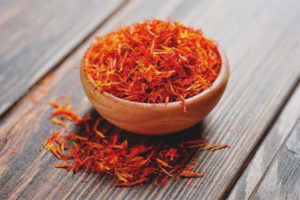

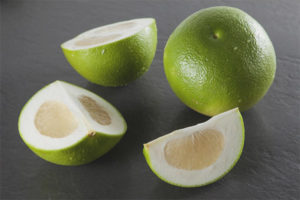
To send